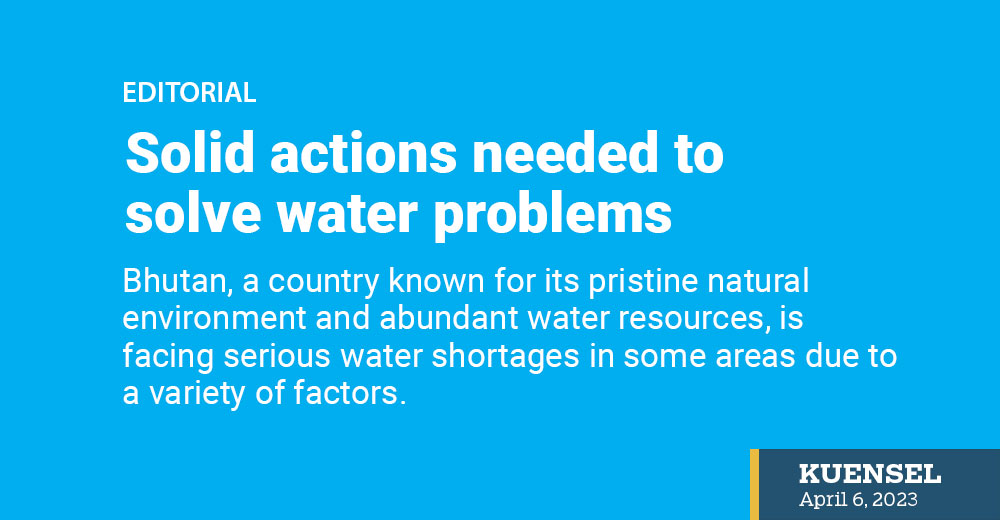Bhutan, a country known for its pristine natural environment and abundant water resources, is facing serious water shortages in some areas due to a variety of factors. With the increasing population and urbanisation of major cities like Thimphu and Paro, the imbalance in terms of spatial and temporal distributions is leading to water scarcity. It is high time that we take immediate measures to address this issue before it becomes a severe crisis.
The unpredictable climate and the threats of glacier melting are challenges that may not be in our control, but there are other factors that we can address to mitigate the water scarcity issue. The first step towards addressing this problem is the effective and sustainable management of water resources. We must explore all possible sources, including underground water, which are yet to be tapped. Moreover, we must ensure equitable distribution of water resources without any discrimination to any region or ethnicity.
It is also essential to identify the key factors contributing to the water shortage such as the excessive use of water, leakage in pipes and taps and wastage of water. We need to promote the efficient use of water through the implementation of conservation measures, educating people about the importance of water conservation and the wise use of water. Building rainwater-harvesting systems could be one solution for water conservation in Bhutan.
Another critical aspect to consider is the introduction of modern irrigation systems that can improve agricultural productivity in rural areas, lessening their reliance on rain-fed agriculture. This will not only contribute to food security but also reduce the pressure on water resources in urban areas. De-Suung Water Project has already made water available to over 1,383 acres of farmlands in the country.
The need for stakeholder participation and multi-sectorial coordination is also crucial in managing water resources effectively. A co-ordinated approach is necessary to tackle the issue, which includes the government, private sector companies, civil society, and local communities. Adequate funding and resources must be allocated to prioritise this issue, and the government should also ensure that stringent regulations are in place to govern the usage of water resources.
The water shortage problem in Bhutan does not have an easy solution, and it requires a sustained and coordinated effort from all stakeholders. As citizens, it is essential that we become cognizant of the water resource challenges facing us and contribute proactively towards mitigating this problem. It is time we all take a collective responsibility to ensure equitable water distribution across Bhutan and work towards protecting our precious water resources.


